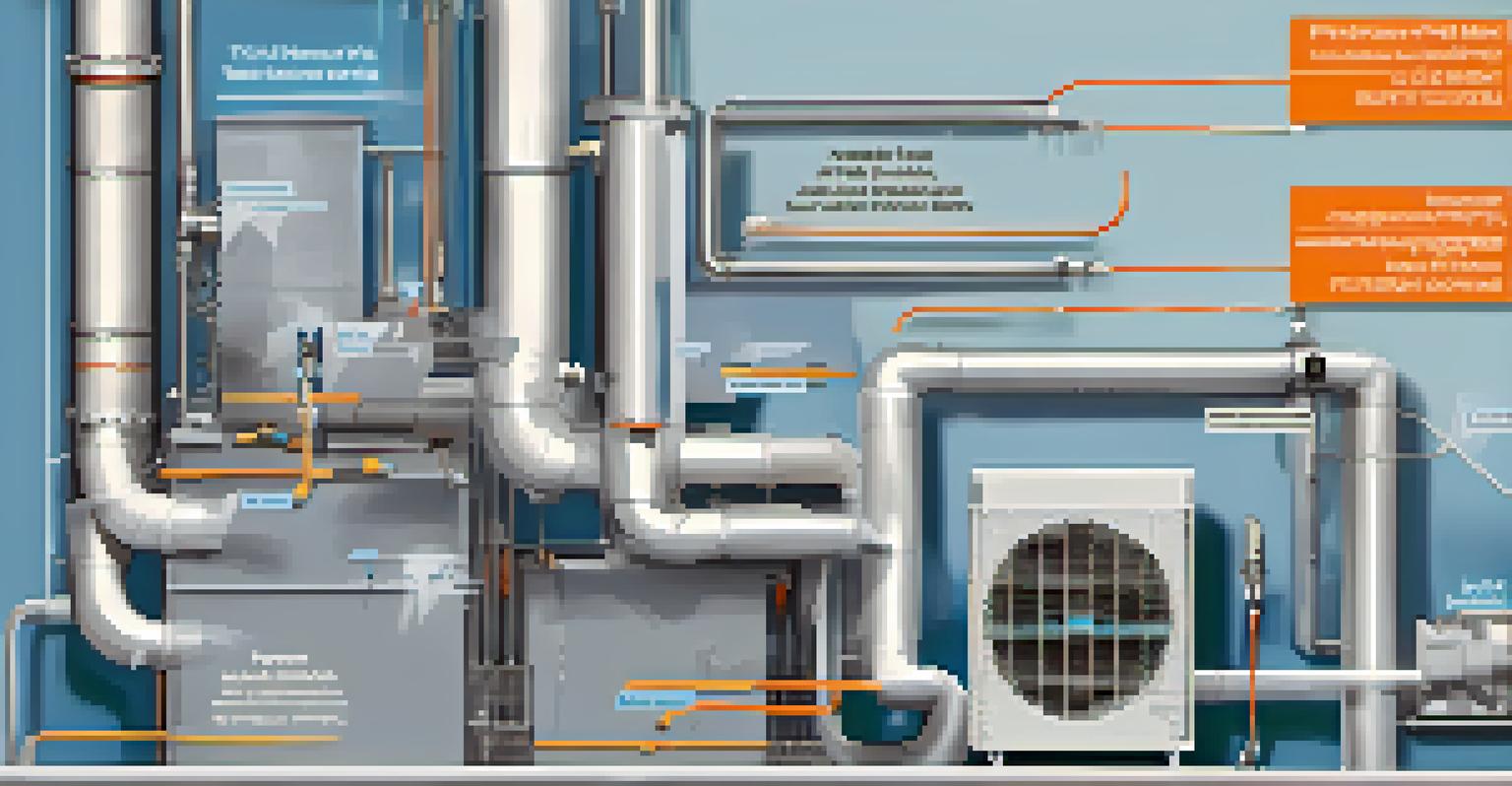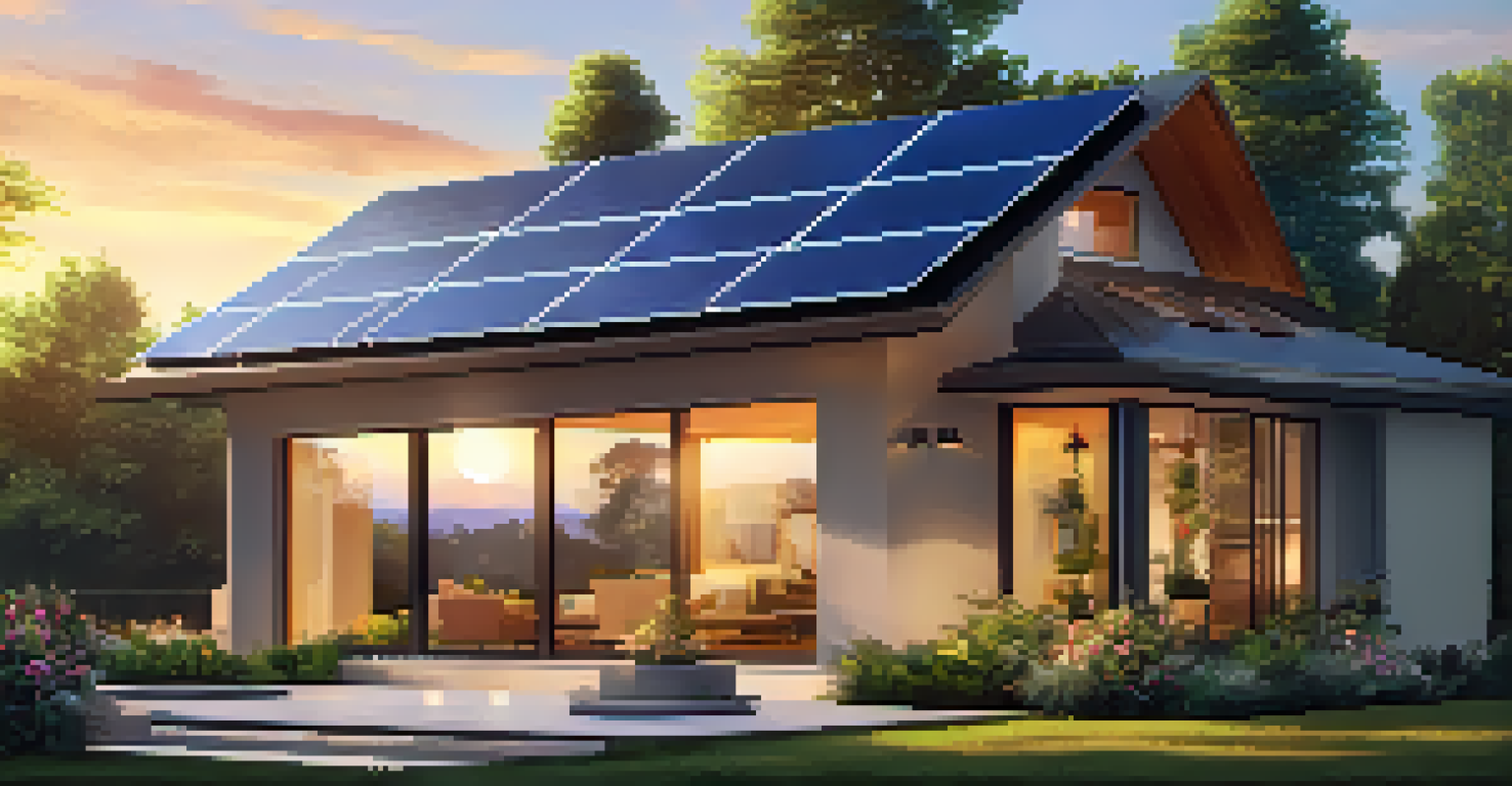Choosing the Right HVAC System for Maximum Efficiency

Understanding the Basics of HVAC Systems
HVAC stands for Heating, Ventilation, and Air Conditioning, and it's essential for maintaining a comfortable indoor climate. These systems work together to regulate temperature, humidity, and air quality in your home. Understanding how each component functions can help you make informed decisions about your system's efficiency.
The best way to predict the future is to create it.
For instance, heating systems can include furnaces, heat pumps, or boilers, while cooling systems often consist of air conditioners or evaporative coolers. Ventilation ensures fresh air circulates, which is vital for both comfort and health. Knowing the basics sets the foundation for choosing the right system tailored to your needs.
By grasping these concepts, you can better evaluate your options and prioritize efficiency. Remember, an informed choice often leads to long-term savings and improved comfort.
Assessing Your Home's Heating and Cooling Needs
Before selecting an HVAC system, it's crucial to assess your home's specific heating and cooling requirements. Factors to consider include the size of your home, insulation quality, and local climate conditions. A system that's too small will struggle to maintain comfort, while one that's too large can waste energy and lead to higher bills.

Start by calculating the square footage of your home and consider the layout. For example, a multi-story house may require zoned systems for optimal comfort. You can also use tools like the Manual J calculation, which estimates your heating and cooling needs based on various factors.
By understanding these needs, you can choose a system that operates efficiently and effectively. This assessment is the first step towards achieving maximum efficiency in your HVAC system.
Exploring Energy-Efficient HVAC Options
When it comes to energy efficiency, various HVAC systems stand out. Look for options with high Seasonal Energy Efficiency Ratio (SEER) ratings for cooling and Annual Fuel Utilization Efficiency (AFUE) ratings for heating. Higher ratings indicate better energy use, which translates into lower utility bills and a reduced carbon footprint.
Sustainability is no longer about doing less harm. It's about doing more good.
Consider energy-efficient models like heat pumps that can provide both heating and cooling. They work by transferring heat instead of generating it, making them a more efficient choice. Additionally, innovations like variable-speed compressors can adapt to your home's needs, further enhancing efficiency.
Exploring these options empowers you to choose a system that not only meets your comfort needs but also aligns with your energy-saving goals. Investing in energy-efficient HVAC can yield long-term savings and contribute to a more sustainable lifestyle.
The Importance of Proper Sizing for Efficiency
Sizing your HVAC system correctly is essential for maximizing efficiency. An oversized system will cycle on and off frequently, leading to higher energy consumption and uneven temperatures. Conversely, an undersized system will struggle to maintain comfort, resulting in increased wear and tear.
To avoid these issues, consult with an HVAC professional who can perform a load calculation tailored to your home. They will factor in your home's characteristics, local climate, and even your lifestyle habits. This ensures you select a system that operates efficiently throughout the year.
Proper sizing not only enhances comfort but also extends the lifespan of your HVAC system. It's a critical step that shouldn't be overlooked when aiming for maximum efficiency.
Selecting the Right HVAC Technology for Your Needs
Different HVAC technologies offer distinct advantages, so it's essential to choose one that fits your needs. For example, if you live in a mild climate, a heat pump might be the most efficient choice, as it can provide both heating and cooling without excessive energy use. On the other hand, regions with extreme temperatures may benefit from traditional heating systems.
Additionally, consider advanced technologies like smart thermostats that allow you to monitor and control your system remotely. These devices can help you optimize your energy use by adjusting temperatures based on your schedule. Enhanced technology often translates into greater efficiency and convenience.
By selecting the right technology, you not only improve your home's comfort but also contribute to energy savings. It’s about finding the perfect balance between your environmental values and practical needs.
Understanding Installation and Maintenance Costs
When evaluating HVAC systems, it's important to consider both installation and maintenance costs. While some systems may have a higher upfront cost, their energy efficiency can lead to significant savings over time. Be sure to factor in these long-term savings when making your decision.
In addition to installation, regular maintenance is crucial for keeping your system running smoothly. Routine checks can prevent costly repairs and help maintain efficiency. For example, changing air filters regularly and scheduling annual professional inspections can extend the life of your system.
Understanding the full financial picture helps you make an informed choice. By balancing initial investment with ongoing costs, you can select an HVAC system that meets your budget and efficiency goals.
Considering Environmental Impact and Sustainability
As we become more conscious of our environmental impact, choosing an HVAC system with sustainability in mind is increasingly important. Look for systems that use eco-friendly refrigerants and have energy-efficient ratings. These choices can significantly reduce your carbon footprint and promote a healthier planet.
Additionally, consider renewable energy options like solar-powered HVAC systems. These systems harness energy from the sun, providing a clean and sustainable way to heat and cool your home. While the initial investment may be higher, the long-term benefits for both your wallet and the environment are undeniable.

By prioritizing sustainability in your HVAC choice, you’re not only improving your home's efficiency but also contributing to a cleaner, greener future for everyone.